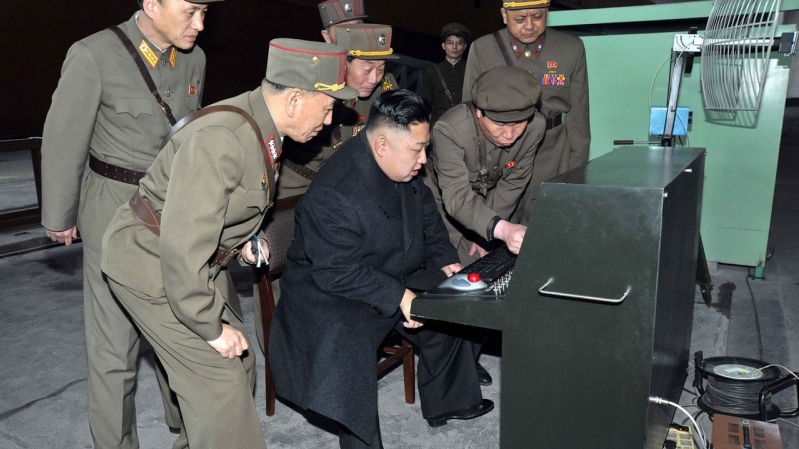
Much of the recent news of North Korea focuses on its ability to become a nuclear superpower, and how it will use it against other countries, particularly the United States. The United Nations' recent sanctions for the country put China in a threatened position, and a threat that could grow greater with the possibility of refugees from North Korean entering its borders.
According to the South China Morning Post, North Korea has become an increasing threat to China. This was the words of an online commentary by the state-run People's Daily overseas edition, China's state-run newspaper, and it compared the instability in the Korean peninsula with what is going on with Syria.
This online piece in the People's Daily, which was later deleted, said it was time for North Korea to rethink its nuclear weapon strategy because it could jeopardize Pyongyang's stability. Considering that China's Ministry of Commerce has sanctions supporting the United Nation's call to stop imports of coal, iron ore, gold, titanium, and rare earths, as well as a variety of exports, this is going to affect the North Korean capital eventually, possibly within six months or a year.
The National Review states that China's cooperation on sanctions has been "reliably disappointing over the years," as China "cowers before a key piece of leverage held by North Korea: the prospect of millions of refugees streaming northward across the border." This flood of refugees could be the result of a regime collapse or just by North Korea as a form of retribution.
Drew Thompson and Carla Freeman of the US-Korea Institute also fear what could be a possible "Mariel scenario." This would be similar to the manufactured exodus of 125,000 Cubans to the United States in 1980, in which Cuba just dumped their people onto U.S. soil, which included inmates released from Cuban prisons. Harvard professor Kelly Greenhill calls this use of coercive engineered migrations by corrupt governments as a "safety valve", and Greenhill wrote about this practice extensively in his book Weapons of Mass Migration.
Because of this, China has fenced off large parts of its border and engages in military simulations based on what would be a hypothetical flood of North Korean immigrants. In the last decade, there were movements by the George W. Bush Administration to promote mass North Korean defections as well as urging China to grant defectors refugee status, but China denied these efforts.
A report from the Asian security-focused Nautilus Institute says that North Korea has engineered an exodus into China in 1998, and it was "likely as a safety valve to alleviate some of the problems of population hunger and hardship." What could happen as a result of a fall of the regime in North Korea is over 3 million people crossing the northern border into China, with some crossing the heavily mined southern border.
So when it comes to North Korea, it might not be the nuclear warheads that should be planned for, but also the inevitable refugee situation.







